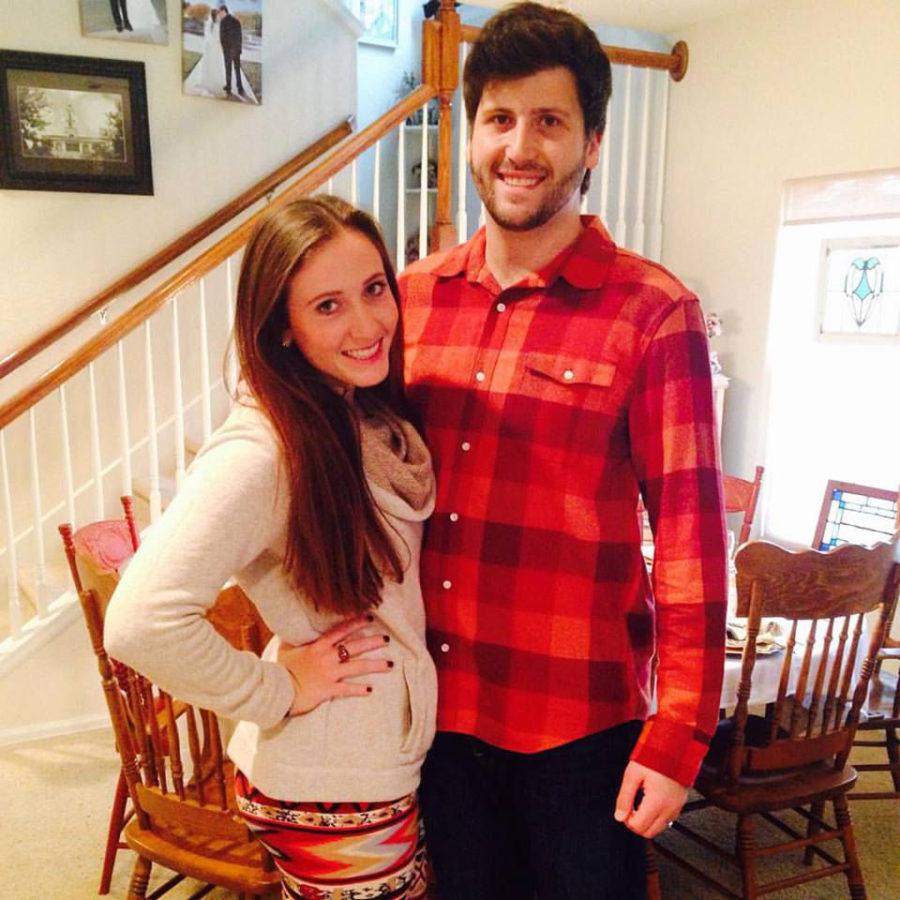New spouse, new family
Courtesy of Christian and Jorden Spendlove
Christian and Jorden Spendlove.
December 10, 2015
As the wedding bells ring, vows are exchanged and a new marriage is celebrated. Among the pyramid of wedding gifts comes the package of the spouse’s family.
Christian Spendlove and Jorden Spendlove (Smith) have been married since Dec. 19, 2012.
Christian, senior in advertising, first met the Smith family at one of Jorden’s high school softball games, when Christian and Jorden were still friends.
“There isn’t much difference in our families as we are of the same religion, other than a few practices that they keep a little differently than my family,” Christian said. “I would say the biggest [difference] is that Jorden’s family is more matriarchal than mine. Her mom really calls the shots.”
However, Christian finds it interesting to see how different two seemingly similar families can be.
“The biggest challenge for me is getting my wife’s family to understand that we are our own, independent family unit,” he said. “I feel like a lot of times they want to make plans for us and expect us to go along with them. But it’s really important to me for her family and mine, for that matter, to recognize that we are our own people.
“If our plans don’t coincide with theirs, they shouldn’t take offense when we decline.”
Nonetheless, the challenges Christian encountered does not make him think any less of the Smiths.
“I really do want to express my love for the Smiths and all they do for us,” he said. “They are wonderful, loving people whose No. 1 priority is their family.”
Christian understands that with any joining of two families there will be some frictions, but he thinks that it should come down to the husband and wife to navigate those frictions and decide how they will manage them.
With different values and beliefs, the merging of two families can be complex. The perfect partner may not guarantee a perfect family that is easy to get along with.
Megan Gilligan, assistant professor of human development and family studies, believes that similarity makes the world go round.
“The more homophily you have in your partner choice and even in your friendships, the more stable that relationship is,” Gilligan said.
Homophily, in other words, ‘love of the same,’ is the tendency of individuals to associate and bond with people who are similar to them.
Many acquaintances were surprised when they were told that Gilligan and her husband Travis Sippel, assistant professor of mechanical engineering, work as a sociologist and an engineer. But as it turns out, Gilligan has a lot in common with Sippel.
“We met in graduate school at Purdue University and both of us were really passionate about pursuing advanced degrees,” Gilligan said. “We both value our families and enjoy the outdoors. In some ways, it was pretty easy to blend our families because we are both from the Midwest and come from families with very strong work ethics. Both of our moms are nurses, too.
“Differences in core values and beliefs can often be a source of tension, but that doesn’t mean that you have to choose partners or in-laws who are exactly like you.”
When these differences exist, it is important to be aware of them from the beginning, and to know what challenges they are going to bring, Gilligan said.
“The wedding is not a magical event that changes everything,” Gilligan said. “Problems that played out when a couple were dating happens even after marriage. When people are aware of these differences and still ignore it, it’s not going to go away.”
Gilligan suggests solving the problem early and addressing them before getting married.
“If the problems are left untalked about, that’s when it really puts a strain on relationships, and people start withdrawing from one another,” she said. “When these issues come up, this is when you need to have conversation about to reach a common ground.”
One of the biggest challenges Gilligan and Sippel face is geographic proximity because Sippel’s family lives in Nebraska, and Gilligan’s family lives in Iowa.
“This is convenient in a lot of ways, but makes holidays a little tricky,” Gilligan said. “We can only visit one family at a time. So one Thanksgiving, Travis’ parents actually came to my parents’ house and we all spent the holiday together.”
Diana Baltimore, a lecturer in human development and family studies, said communication is vital in a relationship as it either makes or breaks a family.
“When you’re merging families with different cultural backgrounds, it is important to respect and honor each of their own beliefs and values,” Baltimore said. “The ultimate goal would be that you celebrate and respect the cultural values for each family.”
The communication would come before the blending of the family, so if they know that it’s not going to work, they have to make an informed decision based on that, Baltimore said.
On the flip side, if the relationship with another family member is toxic or negative, the best case scenario is to avoid forced interactions with him or her.
“The key is to avoid forcing people into relationships and to respect all parties involved,” Baltimore said. “Some people may never want interactions. We can’t just assume that just because you’re family that everybody has to meet and get along.”







